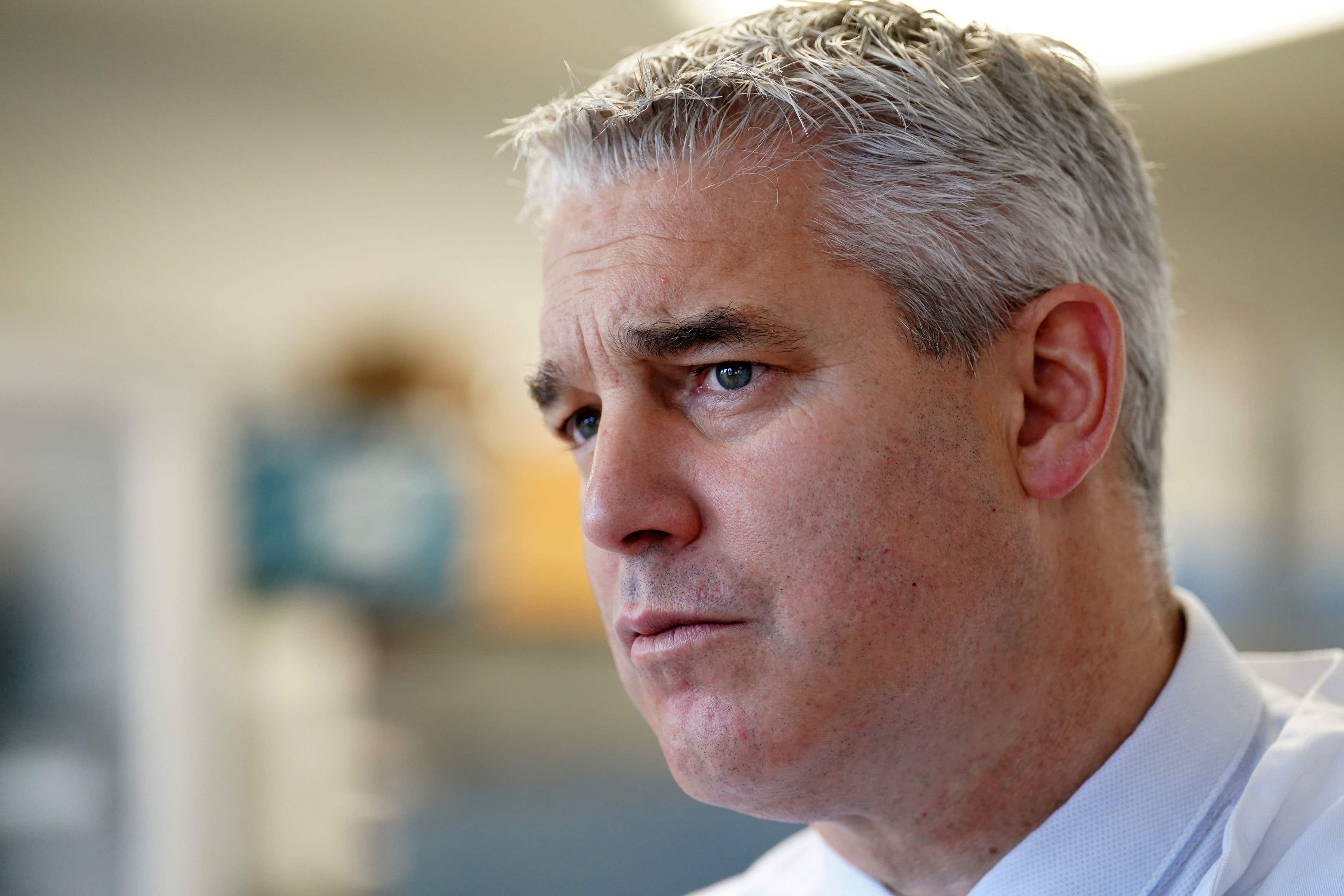‘My door is open but contingency plans must be made’ – Health Secretary
It comes amid reports that armed forces personnel could be drafted in to help the NHS during planned strike action.

Your support helps us to tell the story
From reproductive rights to climate change to Big Tech, The Independent is on the ground when the story is developing. Whether it's investigating the financials of Elon Musk's pro-Trump PAC or producing our latest documentary, 'The A Word', which shines a light on the American women fighting for reproductive rights, we know how important it is to parse out the facts from the messaging.
At such a critical moment in US history, we need reporters on the ground. Your donation allows us to keep sending journalists to speak to both sides of the story.
The Independent is trusted by Americans across the entire political spectrum. And unlike many other quality news outlets, we choose not to lock Americans out of our reporting and analysis with paywalls. We believe quality journalism should be available to everyone, paid for by those who can afford it.
Your support makes all the difference.The Health Secretary has insisted his “door is open” to resume talks with health unions to avert unprecedented strike action in the NHS as he warned “there will be impacts on patients if the strikes go ahead”.
Steve Barclay said he is “very happy to continue dialogue” with the Royal College of Nursing (RCN).
But on Monday RCN general secretary Pat Cullen accused the Government of being the main obstacle to a deal and choosing “strike over negotiation”.
It comes amid reports that armed forces personnel could drive ambulances and stand in for frontline hospital roles under contingency plans ahead of strikes by a range of different NHS workers.
Mr Barclay said he has not formally contacted the military about stepping in to assist the NHS during walkouts.
But officials will consider a “range of options” as part of contingency plans for strike days, he said.
Speaking at a visit to the Royal Marsden Hospital in London, Mr Barclay said: “No formal request has been made by the Department of Health to the military but, of course, we will look as part of our normal contingency plans and a range of options.
“The priority for me is to continue the dialogue with the trade unions, with the RCN – I’ve been extremely clear that my door is open.
“They have raised a range of issues, not just pay, but also about working conditions, patient safety. And so I’m very happy to continue that dialogue with the RCN.
“But alongside that, it’s right that, with NHS England colleagues, with hospital leaders, that we look at our contingency plans and ensure we’re as best prepared as we can be, recognising that there will be impacts on patients if the strikes go ahead.”
On ITV’s Peston programme on Monday, Ms Cullen urged the Government to negotiate with her union.
“The Royal College of Nursing is open day and night for negotiations. Our door’s wide open and we’re willing to go anywhere to negotiate on behalf of our nursing staff.
“You would need to ask the politicians that at Westminster, why they won’t negotiate, but it’s really important that they do. They have refused to negotiate with us and consequently have chosen strike over negotiation.
“And I find that appalling, really appalling, to sit here today and to find that they’re not willing to negotiate with us.”
The chief executive of NHS England, Amanda Pritchard, admitted that some care will be postponed due to the strikes but insisted patients would not be told of cancellations at the last minute.
Appearing before the Public Accounts Committee, Ms Pritchard said the pay dispute presented “an extraordinarily difficult set of circumstances” and added she could not confirm how far in advance people would be told of changes to any upcoming procedures.
They have refused to negotiate with us and consequently have chosen strike over negotiation
She suggested an “overall set of principles” for how to deal with care during the industrial action would be formulated but that specific decisions would be made on a patient-by-patient basis at a local level.
“First of all, we need to know which trusts are actually going to be affected and then they will need to have those local conversations … and they will, I’m afraid, in some circumstances be, I’m sure, having to postpone patients’ care and want to give people as much notice as possible,” she said.
The RCN confirmed on Friday that nurses in around half of all NHS trusts would walk out on December 15 and 20 in a dispute over pay.
It has been reported that Mr Barclay had urged the union to “come back to the table”, but not to discuss pay, instead wanting to talk about conditions such as pension arrangements, holidays, rosters and the availability of free coffee.
Ms Cullen wrote to Mr Barclay telling him it is “negotiations or nothing”.
An RCN spokesman said: “When the Government would rather send for the military than negotiate with nurses, their priorities are seriously amiss.
“Today’s reports of striking nurses to be offered hot drinks by the minister shows this has become a patronising case of ‘tea and sympathy’.”